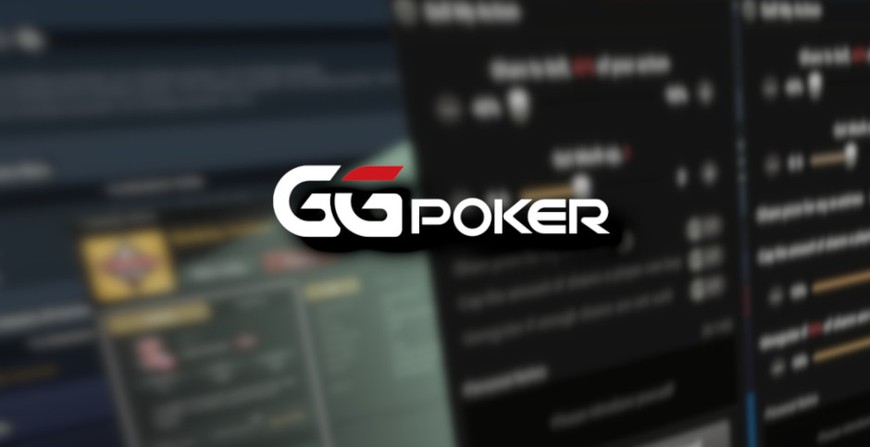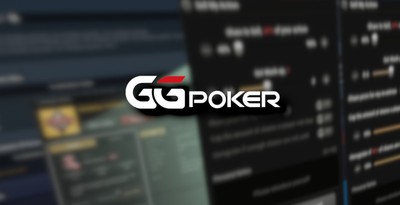

- All staked players must disclose their backing arrangements in full via the new “Designated Backer” feature.
- All backers must have GGPoker accounts to be listed as backers.
- This is a first-of-its-kind measure to oversee backing arrangements in poker.
- It’s unclear how GGPoker will track outside backing deals and what penalties will be imposed for violations.
We believe this transparency means that other players can feel fully confident in the integrity of the tournament ecosystem and not at a disadvantage because of opponents’ hidden relationships.
A couple of weeks back, PokerOK, a skin of GGPoker, surprised the poker community when it came out declaring war on poker stables and mass-scale backing. Continuing down that same path, GGPoker has changed its internal policy, effectively banning any staking arrangements made outside of the platform and requiring players to disclose their backers.
Recent updates to the operator’s Security and Ecology Policy state, in no uncertain terms, that all staked players must disclose their backing arrangements in full via the “Designated Backer” feature. Critically, for this to work, the backer must have an account with GGPoker.
Furthermore, the new system “handles how winnings are split between you and your backer(s) within the GGPoker client,” the policy states — apparently removing any option to run the staking arrangement off-platform.
This is the first time a major poker operator has taken such a radical step aimed at overseeing backing arrangements. Although the policy is now in place, many questions remain — including how GGPoker plans to track outside backing deals and what penalties violators will face.
What Is the “Designated Backer” Feature?
For a long time now, GGPoker has had its own staking platform in place, allowing players to both sell their own action and buy pieces of other players. The platform does all the “hard work,” calculating percentages and distributing any winnings automatically, making it a great solution for short-term staking deals.
However, large-scale backing operations, i.e., poker stables, usually have long-term arrangements with players, and they do their own accounting outside the platform. With the introduction of the “Designated Backer” feature, this will no longer be an option, at least not for those who want to follow the operator’s rules.
According to the recent TOC update, every staked player must use this feature to list all backers putting money towards their buy-in and the percentage of profits going back to every individual backer. For this to work, all backers must also have a GGPoker account.
The first item in the “Designated Backer” section on the GGPoker site states:
GGPoker’s Security & Ecology policy states that players funded either fully or partially for tournament buy-ins must use the Designate Backer feature to declare this before they play on the GGPoker client.
As worded, any player playing backed and without naming their backers will be breaking terms of use. Potential repercussions for this transgression, as listed by GGPoker, are a warning, suspension, or permanent ban.
Furthermore, it looks like a simple declaration isn’t enough. The system handles the whole staking arrangement — you declare the total of your tournament profits to go to your backers, up to 100% — so there is no option to declare an arrangement handled off the GGPoker app.
“GGPoker’s Designated Backer feature has been introduced to ensure full transparency, requiring players to disclose any private backing arrangements they have with third parties,” a spokesperson for GGPoker told pokerfuse.
“We believe this transparency means that other players can feel fully confident in the integrity of the tournament ecosystem and not at a disadvantage because of opponents’ hidden relationships,” the spokesperson further added.
Cleaning Up the Poker Ecosystem
The main idea behind the recent change comes on the heels of the announcement from PokerOK earlier this month, which announced wars on poker stables and announced its determination to create a fairer and more enjoyable poker ecosystem for all players.
With players listing all of their backers in every individual event, it will be much easier for the operator to track any untoward behaviors, such as soft playing, chip dumping, ghosting, or any other actions that would indicate cooperative play.
The original announcement by PokerOK created quite a stir in the poker community, with several high-profile individuals sharing their thoughts on the matter. This big policy change will certainly create a lot of controversy and will not sit well with those involved with major backing operations.
On one hand, it’s not hard to see where the motivation for this change comes from, as there is no denying that some players will take any edge to improve their EV, including those morally questionable or straight up against the rules. On the other, though, many honest players rely on staking, and this could be a big blow as some backers may decide to leave the site altogether.
Finding the Right Balance
Although the policy change may not seem like a big deal on the surface and to those not familiar with how poker staking works, the fact of the matter is that it stands to create major hurdles.
Some backers may not even be legally able to have a GGPoker account (because they live in a country where GGPoker doesn’t offer its services, for example). Having to enter all the details for every individual tournament creates a lot of administrative overhead and the whole concept doesn’t really work for long-term staking arrangements.
On the GGPoker side of things, the question remains of how they intend to implement this policy. Players backed outside of the platform aren’t that easy to recognize, as it’s impossible to say if someone is playing with their own money or they are using someone else’s funds. If it’s a private arrangement, the only way to really know is if someone “blows the whistle” on the operation.
It may well be the case that the operator doesn’t want any players involved in long-term staking arrangements on the site and these changes are meant as a deterrent to major backing operations. This type of purge could certainly help make the games fairer and get rid of some of the bad apples, but it could also have a big impact on player numbers, especially in higher buy-in events.
Is this the right thing to do or a more balanced approach is needed? Only time will tell.

